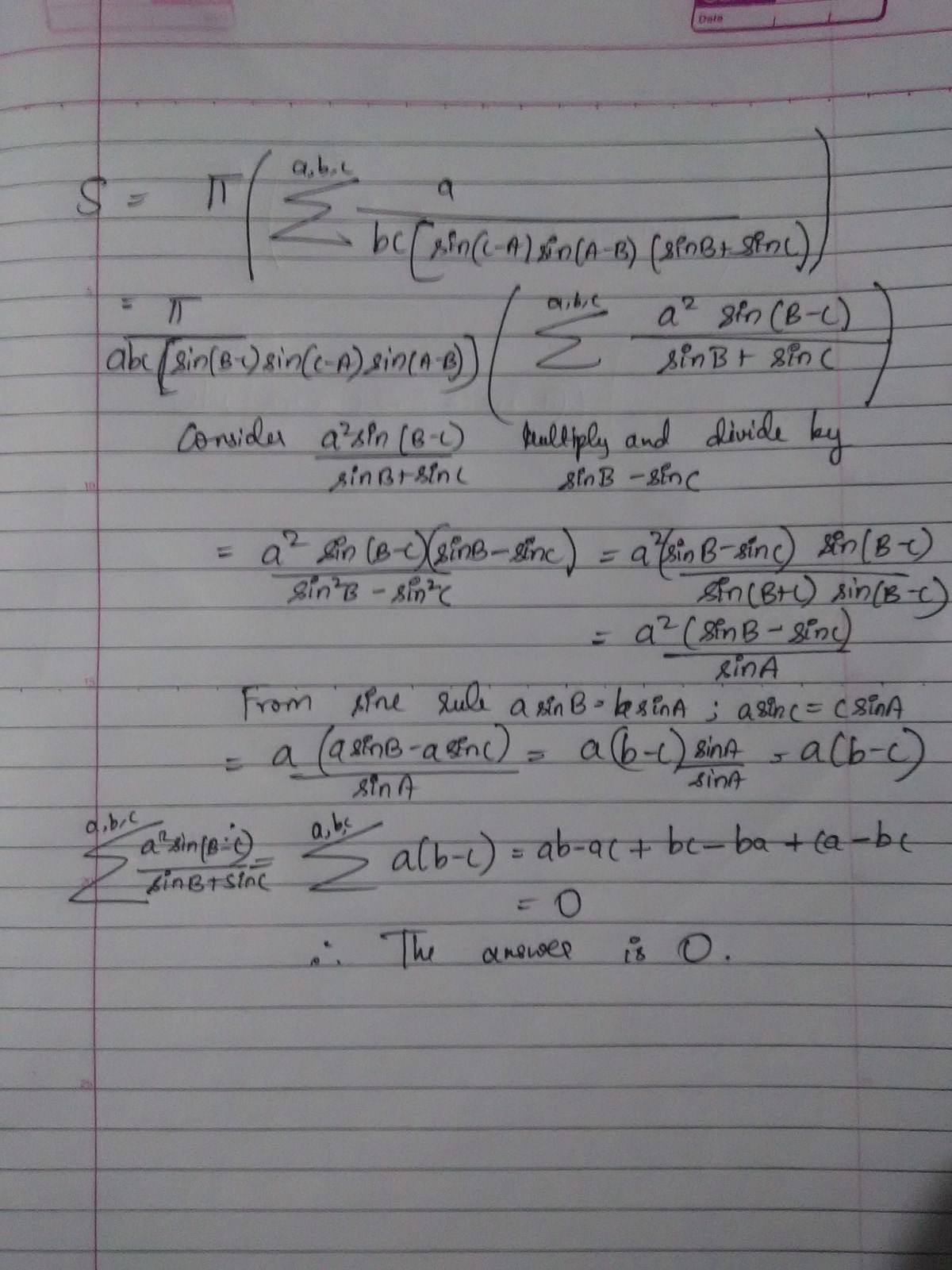How good are you with Triangles!
π ⎝ ⎛ ∑ a , b , c b c [ sin ( C − A ) sin ( A − B ) ( sin B + sin C ) ] a ⎠ ⎞
Consider a △ A B C . Find the above summation up to 3 decimal places. Here the summation is a cyclic summation i.e the a in the first term becomes b in the second and c in the third. The same holds for angles.
If you think the above sum is not a constant for a given triangle then type 0.22 as your answer.
Note : A = B = C or A , B , C are distinct .
Feel this is a bit difficult ,try this problem
This problem is a modified one, from a book written by S.L. Loney.
The answer is 0.000.
This section requires Javascript.
You are seeing this because something didn't load right. We suggest you, (a) try
refreshing the page, (b) enabling javascript if it is disabled on your browser and,
finally, (c)
loading the
non-javascript version of this page
. We're sorry about the hassle.
2 solutions
Just one more thing, A = C = B ⟹ A = B = C .
So, better say ∣ { A , B , C } ∣ = 3 or that A , B and C are distinct.
Log in to reply
I had done similar to what you have said, but I think the moderator changed it. Anyway I have stated it so that the expression remains finite. What do you mean by ∣ A , B , C ∣ = 3 ?
Log in to reply
I meant that the cardinality of the set { A , B , C } is three. This would imply that all the elements listed are distinct.
Log in to reply
@A Former Brilliant Member – Nice representation (for angles), and thanks for the suggestion
This is not a solution.
We exploit the fact that the given equation is (or was, if the question will be edited later) not homogenous in a , b , c . So if k is the answer to the question, then on doubling the sides of the triangle, 2 k is also a solution. So k = 2 k , or k = 0 .
It is a good solution( except the fact that if its not a constant for a general triangle then you need to type 0.22 as your answer, since you have 3 chances in brilliant, you can get it right).
The above sum can be written as
That's my solution, please post if there are any other